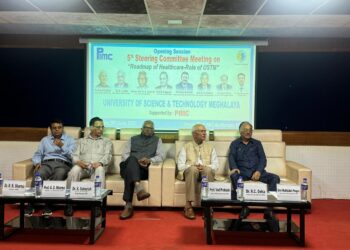An international research scholar of Tezpur University from Alexandria, Egypt, Khalifa Said H. Eldiehy, has successfully produced biodiesel from residual food items such as cooking oil waste and the leaves of radish and sweet potato. This unique and innovative chemical process has significantly reduced the cost of the production of bio-fuel, a long-term issue of scientists around the globe
Khalifa under the supervision of Prof Manabendra Mandal, dept of MBBT, Tezpur University and co-supervision of Prof Dhanapati Deka, dept of Energy, Tezpur University published papers on this process in reputed science journals such as Renewable Energy (IF:8.634) and Industrial Crops and Products (IF: 6.449).
“Our primary intention is to stop climate change,” said Khalifa. “Regular food items such as used cooking oil, thrown away by households and restaurants as waste, can be used as feedstock for producing biodiesel at a much lower cost.”
Khalifa initially started working on this project in October 2019, but due to Covid-19 pandemic his work was affected and slowed down. He used the facilities of the Department of Energy, Tezpur University for his experiments, and the Sophisticated Analytical Instrumentation Centre (SAIC), Tezpur University and North East Institute of Science and Technology (NEIST), Jorhat for analysis.
Khalifa is planning to apply this process of low-cost biodiesel production on a large scale in Egypt in collaboration with Tezpur University and Indian authorities.









